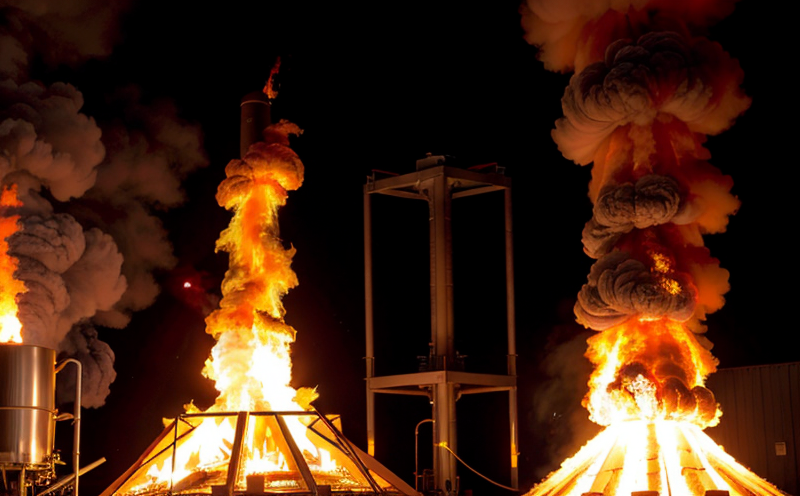Baby Food Chemical Safety Testing
Ensuring that baby food products are free from hazardous chemicals is a critical responsibility for manufacturers and regulatory bodies alike. The process of chemical safety testing involves rigorous analysis to identify potential contaminants, assess the presence of harmful substances such as heavy metals (e.g., lead, arsenic), pesticides, mycotoxins, and other adulterants that could pose risks to infants and young children.
Baby food is a specialized product with strict regulatory requirements. The testing process begins with sample collection from various stages of the manufacturing process—raw materials, intermediate products, and final packaged goods. Samples are analyzed using advanced analytical techniques such as gas chromatography–mass spectrometry (GC-MS), liquid chromatography–mass spectrometry (LC-MS), inductively coupled plasma mass spectrometry (ICP-MS), and high-performance liquid chromatography (HPLC). These methods provide precise quantification of target compounds, enabling accurate identification and quantitation.
Given the sensitivity and importance of this testing, it is crucial to employ internationally recognized standards. Compliance with ISO 17025 ensures that our laboratories adhere to stringent quality management systems. Additionally, we follow FDA (Food and Drug Administration) guidelines for infant formula and baby foods, which mandate specific testing protocols. The European Union’s regulation on contaminants in food has also been integrated into our testing procedures.
During sample preparation, raw materials undergo thorough extraction processes to ensure that all potential contaminants are captured. This step is critical because even trace amounts of harmful substances can be hazardous when ingested by infants and young children. The laboratory environment is strictly controlled to prevent cross-contamination and maintain the integrity of the samples throughout the testing process.
The results of these tests provide manufacturers with valuable insights into the safety profile of their products. This information is used not only for compliance purposes but also to enhance product quality and consumer trust. By adhering to high standards, we contribute to public health by eliminating harmful substances from the food supply chain.
- ISO 17025 accreditation ensures that our laboratories meet the highest standards of technical competence.
- The FDA mandates specific testing protocols for infant formula and baby foods.
- The European Union’s regulation on contaminants in food is strictly followed.
Eurolab Advantages
At Eurolab, we pride ourselves on offering comprehensive and reliable chemical safety testing services for baby foods. Our expertise lies in providing accurate, consistent, and compliant results that meet the stringent requirements of regulatory bodies worldwide.
- International Recognition: We are accredited to ISO 17025, ensuring our tests comply with international standards.
- Experienced Staff: Our team comprises highly skilled scientists and engineers who have extensive experience in chemical analysis.
- State-of-the-Art Facilities: Equipped with advanced instrumentation, including GC-MS, LC-MS, ICP-MS, and HPLC, we can handle a wide range of testing needs.
- Dedicated Resources: We have dedicated teams focused solely on baby food chemical safety testing to ensure consistent high quality.
Customer Impact and Satisfaction
The impact of our services extends beyond regulatory compliance; it directly influences customer satisfaction and brand reputation. By providing accurate, timely results, we help manufacturers avoid costly recalls and legal issues. Our commitment to excellence has earned us a strong track record of customer satisfaction. Clients trust Eurolab with their most critical testing needs because they know they can rely on our expertise and reliability.
Our services are designed to support the entire supply chain, from raw material suppliers to finished product manufacturers. By offering comprehensive testing solutions, we help ensure that every stage of production is safe for infants and young children. This holistic approach not only enhances brand reputation but also fosters long-term business relationships.
Feedback from our clients reflects their appreciation for the quality of our services. They value the accuracy and consistency of our results, as well as the promptness with which we deliver them. Our goal is to provide a seamless testing experience that meets or exceeds expectations every time.
International Acceptance and Recognition
- ISO 17025: Our accreditation ensures compliance with international standards, making our results widely accepted by regulatory bodies worldwide.
- FDA Guidelines: We follow FDA regulations for infant formula and baby foods, ensuring that our tests meet the highest U.S. standards.
- European Union Regulations: Our testing procedures comply with EU directives on contaminants in food products.





